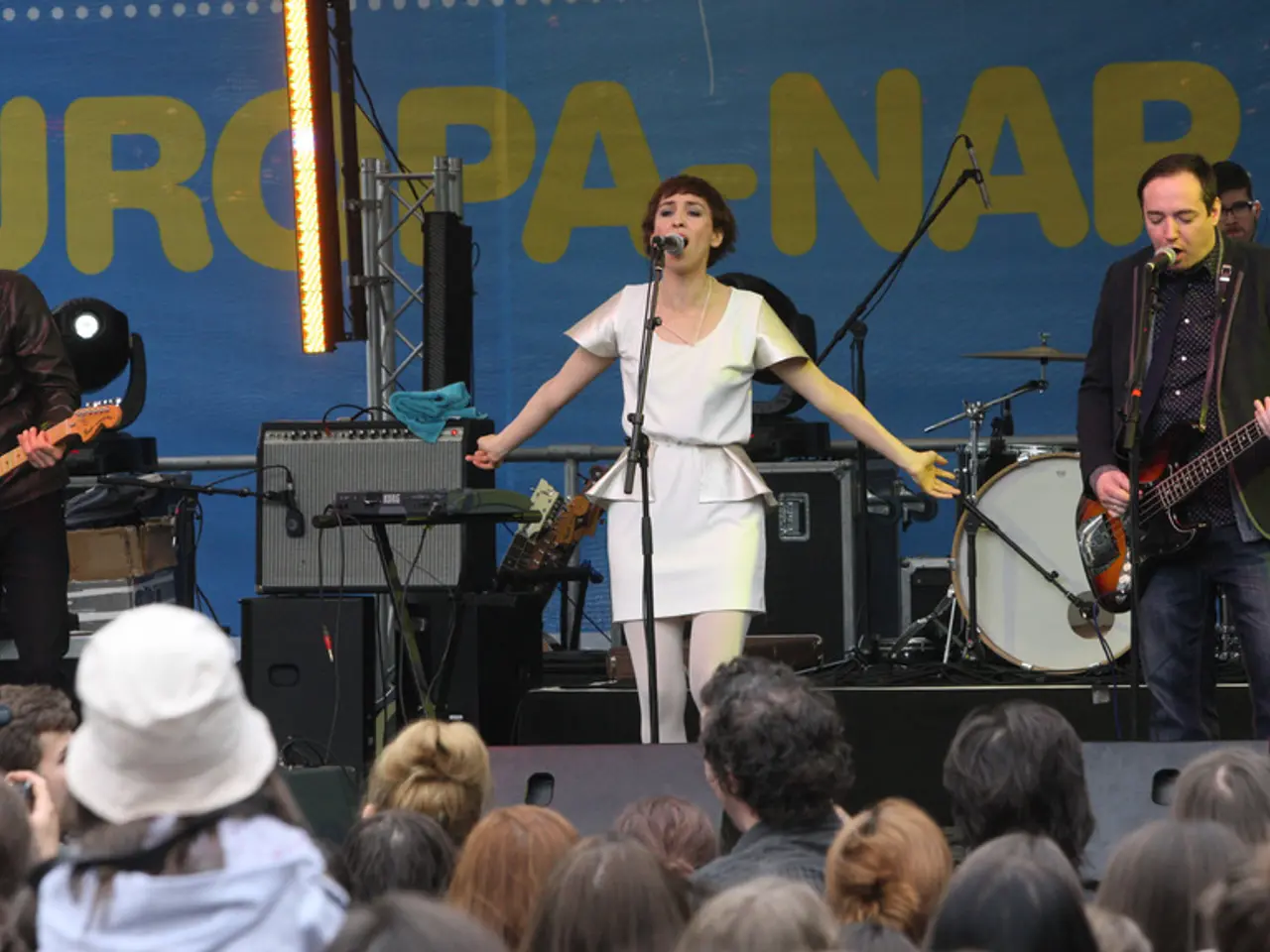Pioneering Journey of Lilith Fair: The 1990s Concert Tour Showcasing Solely Female Musicians
Lilith Fair, a groundbreaking touring music festival that ran for three consecutive years in the 1990s, made history by featuring all female artists. Conceived by Canadian singer Sarah McLachlan in 1996 due to sexism in the entertainment industry, the festival was named after the mythological figure Lilith, who was said to be Adam's first wife but refused to submit to him.
The first year of Lilith Fair in 1997 was a resounding success, selling out almost every show and bringing in over $16 million. Audience members remember the impact Lilith Fair had on them, with Ryan O'Connell describing it as a "female-dominated place" that felt safe. The festival's main stage acts included Fiona Apple, Tracy Chapman, Sheryl Crow, the Indigo Girls, and Jewel.
However, Lilith Fair faced criticism, including being dubbed "Lesbopalooza" and the artists being called out for their "mom music." Despite this, the festival's legacy endured, serving as an inspiration for future artists such as HAIM and Brandi Carlile. It furthered the careers of up-and-coming artists like Dido, Nelly Furtado, and Christina Aguilera.
In 1998, the festival's lineup included Queen Latifah, Erykah Badu, and Missy Elliot, marking Missy Elliot's first live performance. Meshell Ndegeocello, who was part of the 1998 lineup, stated that being part of Lilith Fair was uplifting and healing. Ann Powers, a music critic, described Lilith Fair as a "compilation of every wild idea that women had in music in the '90s" and a snapshot of a huge array of what women were doing in music in this era.
Lilith Fair's third run in 1999 was its last until its brief 2010 revival. McLachlan was exhausted due to personal and professional commitments. Jessica Hopper, the author of an oral history of the festival, stated that Lilith Fair minted stars. However, the 2010 revival was not as successful as the original run due to disorganization and changes in the music landscape.
Despite its challenges, Lilith Fair brought in tens of millions of dollars over its three-year run. Its impact was felt beyond the '90s, influencing future artists. Lilith Fair was more than just a music festival; it was a movement that challenged the status quo and paved the way for a more inclusive music industry.
Read also:
- Abu Dhabi initiative for comprehensive genetic screening, aiming to diagnose over 800 conditions and enhance the health of future generations in the UAE.
- Elderly shingles: Recognizing symptoms, potential problems, and available treatments
- Protecting Your Auditory Health: 6 Strategies to Minimize Noise Damage
- Exploring the Reasons, Purposes, and Enigmas of Hiccups: Delving into Their Origins, Roles, and Unsolved Aspects





